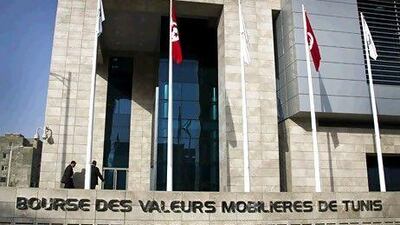A year after the popular uprising in Tunisia sparked the Arab Spring, its stock market has turned in the best performance of any Arab bourse in the last six months.
Having fallen by 30 per cent in the wake of the unrest at the end of 2010, Tunisian stocks have staged a dramatic recovery, fuelled by resilient corporate earnings growth in the second half of last year, growing trade with Libya and forecasts for robust economic growth this year.
"If we work together, we could achieve strong growth in the country despite the economic downturn facing most countries in the EU," said Mourad ben Chaabane, a board member at the bourse and the chief executive of MAC, one of the biggest investment banks in the country.
The Tunis stock market rose 10.5 per cent in the second half of last year, versus a 7 per cent decline of the S&P Pan-Arab Index over the same period. It has a market capitalisation of 14 billion Tunisian dinars (Dh33.99bn) with 57 companies listed.
The recovery is prompting more local firms to list on the exchange, seeking capital for expansion.
Atelier Mecanique du Sahel, which specialises in manufacturing of plumbing equipment and kitchenware, plans to raise US$10 million (Dh36.7m) in a share sale in March to make acquisitions in Egypt.
Land'or, a local cheese company, plans to sell 40 per cent of its company worth about $15m in April to set up a factory in Libya and Abu Dhabi.
Three other companies are also considering a flotation, he added.
The IMF forecasts that the economy will grow by 4 per cent this year and 5.2 per cent next year, more than any other Arab country that experienced uprisings including Egypt, Syria and Bahrain.
"This has encouraged local investors, in the absence of foreign investors who were net sellers in the first half of the year," said Mr ben Chaabane. Foreign investors on the Tunisian stock exchange account for 5 per cent of total trading, down from 15 per cent prior to the revolution, he added.
Growing trade with Libya has been one factor contributing to Tunisia's recovery, rising to €300m (Dh1.43bn) in the first nine months of last year, compared with €100m in the same period a year earlier, the Tunisian trade ministry said in October.
Protectionist measures on the country's currency has also helped demand for Tunisian stocks, said Fathi ben Grira, the chief executive at MenaCorp, a financial services company in the UAE.
"Tunisians can't remit their money abroad," Mr ben Grira said. "When you are a businessman making a lot of money … and you can't use it [anywhere] but in Tunisia, where do you put it? In the stock-market."
Tunisia's currency, which is managed by a controlled float pegged to a basket of currencies comprised of the country's main trading partners, has declined 7.1 per cent against the greenback since November 2010.
The dinar traded at 0.6614 per dollar yesterday.

